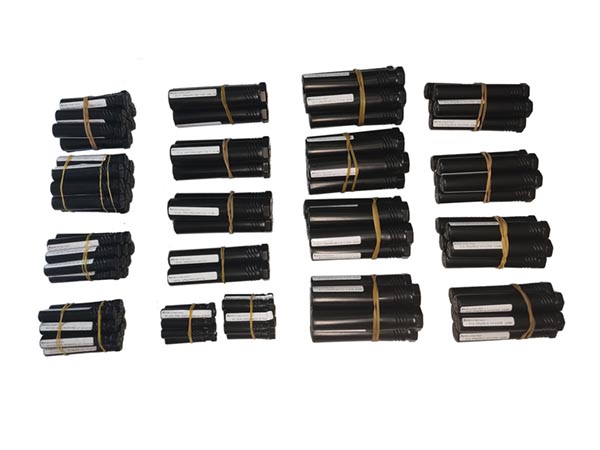
A drill bit is a cutting tool used in drilling machines or hand drills to create cylindrical holes in various materials, including metal, wood, plastic, and concrete. Drill bits come in a wide range of sizes, materials, and designs to suit different drilling applications and materials.
Here are some key aspects of drill bits:
Types of Drill Bits
Twist Drill Bits
These are the most common and versatile types of drill bits. They have spiral flutes that help remove material as the bit rotates. Twist drill bits are used for general-purpose drilling in various materials.
Masonry Drill Bits
Designed for drilling into concrete, brick, and stone, masonry drill bits have a carbide tip for added durability and impact resistance.
Wood Drill Bits
Wood drill bits, also known as spade bits or paddle bits, are designed for drilling holes in wood. They typically have a flat, spade-shaped tip.
Metal Drill Bits
Metal drill bits are specifically designed for drilling into metal. They may have a split point or a 135-degree tip angle to reduce walking and provide precision.
Forstner Bits
Forstner bits are used for creating flat-bottomed, precise holes in wood. They are often used for woodworking and cabinetry.
Hole Saw Bits
These drill bits are used for creating large-diameter holes in materials like wood, metal, and plastic. They consist of a circular cutting edge.
Step Drill Bits
Step drill bits have multiple stepped diameters and are used for drilling holes with various sizes in a single operation.
Materials and Coatings
Drill bits are made from various materials, including:
High-Speed Steel (HSS)
Commonly used for general drilling in materials like metal and wood.
Cobalt Steel
Offers higher heat resistance and is suitable for drilling in harder materials.
Carbide
Provides exceptional hardness and is ideal for drilling in tough materials like concrete and metal.
Diamond
Used for drilling extremely hard materials like glass, ceramics, and stone.
Many drill bits are coated with materials like TiN (titanium nitride) or TiAlN (titanium aluminum nitride) to enhance their wear resistance and extend their lifespan.
Sizes and Shank Types
Drill bits come in various sizes, with diameters typically measured in fractions of an inch or millimeters. The shank type of a drill bit may be straight, tapered, or hexagonal, depending on the tool's compatibility with specific drilling machines.
Choosing the right drill bit depends on the material you're drilling into and the size of the hole you need to create. Proper cutting speeds, feeds, and lubrication are also essential for successful drilling operations.
OEM Capability
 We like to do design according to all the customers' requirements, or offer them our new designs. With strong OEM/ODM capabilities, we can fill your sourcing demands.
We like to do design according to all the customers' requirements, or offer them our new designs. With strong OEM/ODM capabilities, we can fill your sourcing demands. Categories
| HSS-PM Taps | HSSE-M42 Taps |
| HSSE / HSS Taps | Spiral Flute Taps |
| Straight Flute Taps | Spiral Point Taps |
| Multi-function Taps |
| Solid Carbide Drill Bits | Twist Drill Bits |
| Center Drill Bits | Indexable U Drills |
| Flat-end Milling Cutter | Ball Nose End Mills |
